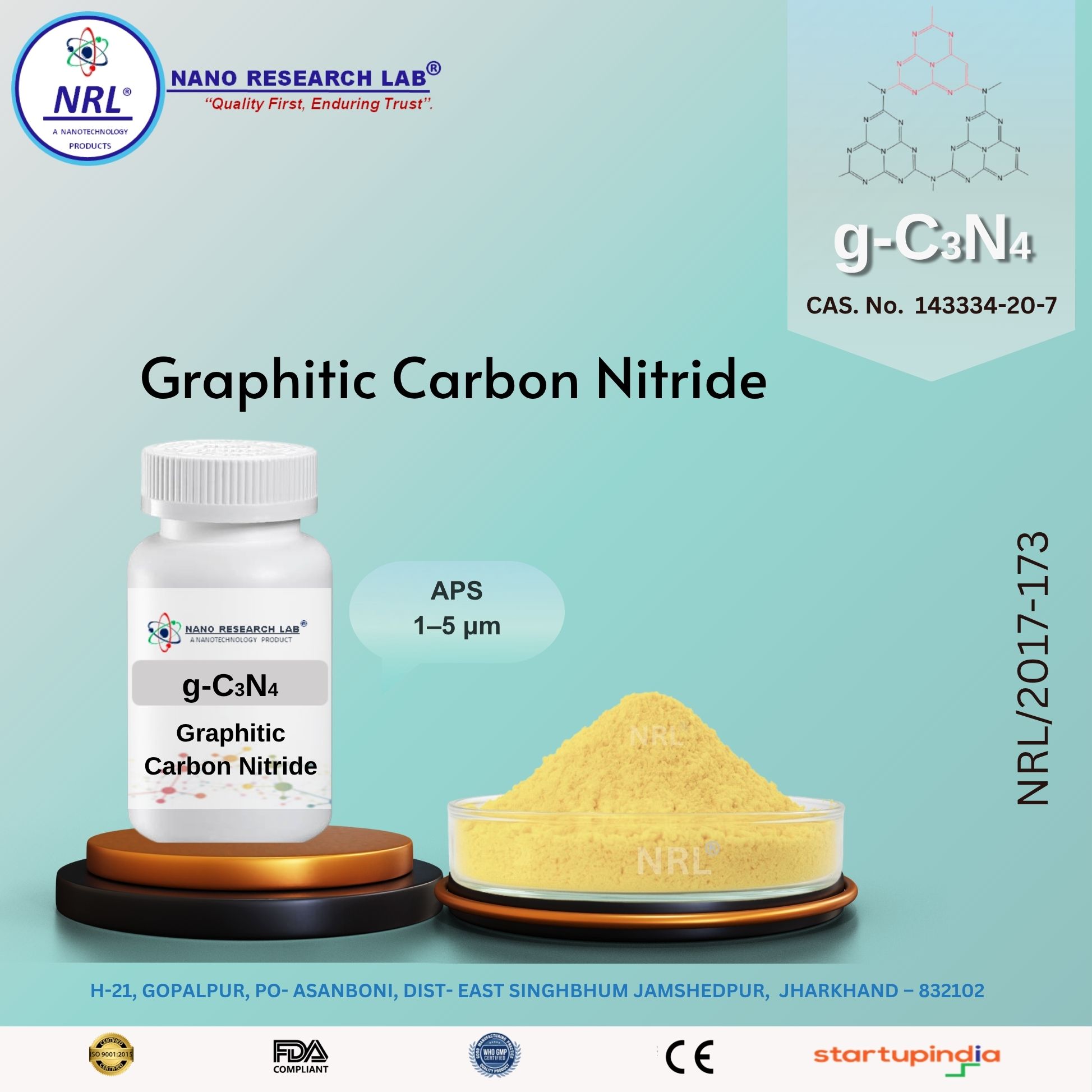
Graphitic carbon nitride (g-C3N4, 1-5um, Purity: >99%)
₹1475.00
🧪 Graphitic Carbon Nitride (g-C₃N₄, 1–5 µm, Purity > 99%)
⚙️ Technical Specifications
Property | Specification |
|---|---|
Chemical Formula | C₃N₄ |
Material Name | Graphitic Carbon Nitride (g-C₃N₄) |
Purity | >99% |
Particle Size | 1–5 µm |
Appearance / Color | Light yellow to pale brown fine powder |
Crystal Structure | Graphitic (hexagonal layered structure) |
Density | ~1.6 g/cm³ |
Band Gap | ~2.7 eV (semiconducting) |
Thermal Stability | Stable up to ~600 °C under inert atmosphere |
Specific Surface Area (BET) | 10–25 m²/g |
Solubility | Insoluble in water and most organic solvents |
Electrical Conductivity | ~10⁻⁶ S/cm |
CAS Number | 1633-05-2 |
Storage Conditions | Store in airtight container; avoid moisture, acids, and direct sunlight |
🌟 Key Features
High-purity graphitic carbon nitride with controlled micro particle size (1–5 µm)
Stable and durable layered structure with high chemical inertness
Visible-light-active semiconductor with ~2.7 eV band gap
Excellent thermal and oxidation resistance up to 600 °C
Environmentally friendly, non-toxic, and metal-free catalyst material
Suitable for photocatalysis, coatings, and composite reinforcement
Provides good dispersion, stability, and scalability for bulk applications
🔬 Applications
1. Photocatalysis & Environmental Remediation
Used for visible-light-driven photocatalytic degradation of organic pollutants
Applicable in hydrogen evolution, CO₂ reduction, and water purification
Acts as a metal-free catalyst in green chemistry processes
2. Energy Storage & Conversion
Applied in lithium-ion batteries, supercapacitors, and fuel cell electrodes
Enhances ion diffusion, charge storage capacity, and electrode stability
3. Advanced Ceramics & Composites
Incorporated into polymer, ceramic, or metal composites
Improves mechanical strength, chemical resistance, and thermal conductivity
4. Catalyst Support & Photocatalytic Composites
Used as a support material for hybrid catalysts (e.g., g-C₃N₄/TiO₂, g-C₃N₄/ZnO)
Enhances visible-light response and photocatalytic efficiency
5. Functional Coatings
Used in anti-corrosion and thermal-resistant coatings
Provides chemical protection, UV shielding, and surface hardness
6. Research & Nanotechnology
Ideal for photocatalysis research, electronic device development, and environmental applications
Commonly used in material synthesis, coating studies, and energy research laboratories
⚠️ Handling & Storage
Store in a sealed, dry container to prevent contamination and moisture absorption
Avoid contact with strong acids, oxidizing agents, and open flames
Handle in a well-ventilated area using gloves, goggles, and dust mask
Keep away from direct sunlight and high humidity
Dispose of material safely according to local environmental regulations
